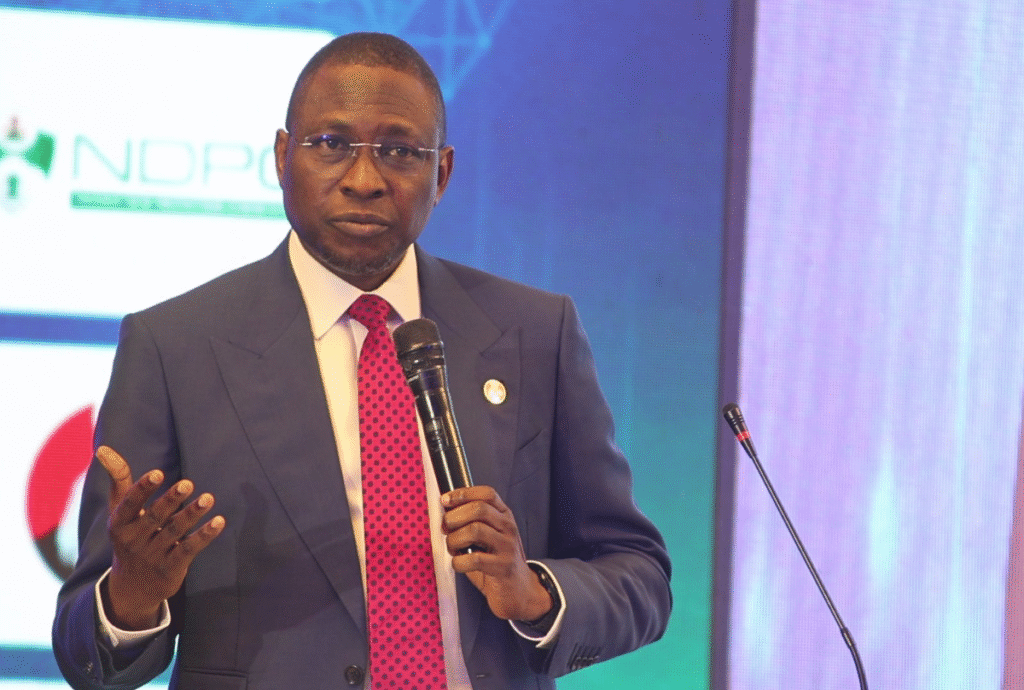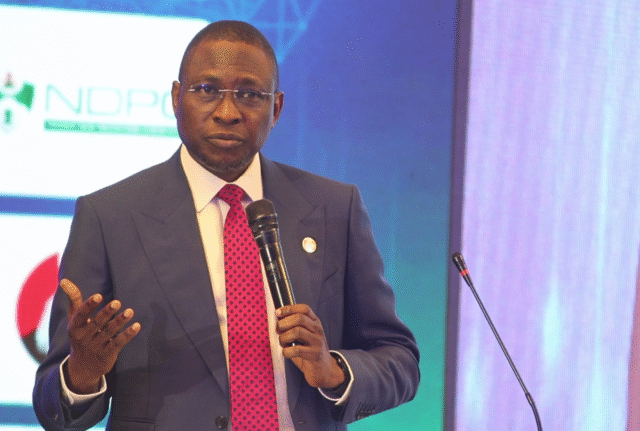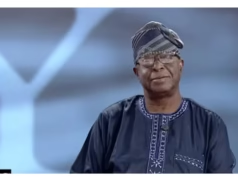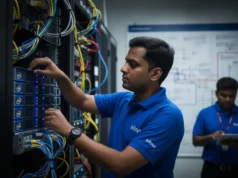In a compelling address at the National Cyber Security Conference hosted by the National Information Technology Development Agency (NITDA), Professor [Ola Olukoyede], Executive Chairman of the Economic and Financial Crimes Commission (EFCC), called for a unified international front to combat the mounting threats of cybercrime and fortify Nigeria’s digital infrastructure.
Table of Contents

A National Call to Action
Professor Olukoyede emphasised that Nigeria—home to Africa’s most dynamic fintech ecosystem—is increasingly vulnerable. He said:
“As Nigeria’s digital landscape expands, so too does the reach of cybercriminals. Our financial ecosystem, brimming with sensitive data and digital assets, is a prime target.”
He stressed that cyber resilience—meaning the ability to endure, adapt to, and quickly recover from cyber disruptions—is indispensable. He described it as “a proactive disposition to anticipate breaches and rapidly secure digital assets” rather than merely reacting to them.
Milestones in Strengthening Cybersecurity
The EFCC has made significant strides over the past two years:
- Cyberforensics: Enhanced investigative and analytic capabilities have led to successful syndicate crackdowns.
- Global collaboration: Strategic partnerships with INTERPOL, the FBI, the RCMP, and the UK’s National Crime Agency have yielded major arrests and convictions.
- New digital infrastructure: The EFCC Cybercrime Rapid Response Centre (E‑C2R2) is in development to allow citizens to report cybercrimes directly and swiftly. Plans are also underway for a Cybercrime Research Centre dedicated to investigation and rehabilitation programs.
Olukoyede highlighted that these efforts are explicitly designed to reinforce Nigeria’s global standing as a nation serious about cybercrime containment.
Building a Collective Defence
Olukoyede cautioned that digital security cannot be maintained in silos. His blueprint called for a comprehensive, unified system including:
- Board-level cyber governance in banks and fintech firms.
- Sustainable cybersecurity investments in both infrastructure and human resource development.
- Mainstreaming cybersecurity priorities into national economic and developmental policies.
- Developing a national cybersecurity framework that spans regulators, law enforcement, private firms, and civil society.
He asserted, “Cyber resilience in the financial ecosystem demands deeper synergy between regulators, law enforcement, financial institutions, and civic organizations.”
Conference & Leadership Support
NITDA CEO Kashifu Inuwa Abdullahi voiced strong support for the initiative, describing the conference as “a movement for building strength and synergy to achieve a more formidable cybersecurity posture.”
The event drew participation from high-ranking officials, including the National Security Adviser, senior legislators, and the diplomatic community—underlining its national significance.

Why Global Cooperation Is Crucial
1. Cybercrime Knows No Borders
The UN Convention on Cybercrime, adopted in December 2024, exemplifies the need for transnational alignment—facilitating legal harmonisation, mutual legal assistance, and expedited digital evidence exchange.
2. Learning from Regional Best Practices
Africa’s collective efforts—such as those from the African Network of Cybersecurity Authorities (ANCA)—highlight successful continental policy coordination. Through shared intelligence systems and joint exercises, African nations are growing stronger together.
3. Putting Pressure on Criminal Syndicates
Nigeria has been a hotspot for groups like the SilverTerrier syndicate—linked to over 400 business email compromise operations globally. Joint operations between Nigerian police and INTERPOL recently led to over 11 indictments.
4. Cross-border Enforcement Wins
Global initiatives like INTERPOL’s Operation Jackal III—spanning 21 countries—demonstrate the effectiveness of coordinated enforcement against cybercriminal cartels. This operation alone resulted in roughly 300 arrests and millions in asset seizures.
Recommended Next Steps
To transform these aspirations into measurable outcomes, experts recommend:
- Rapid treaty adoption: Nigeria should expedite ratifying global treaties like the UN Cybercrime Convention to enable formal legal channels for asset seizure and extradition.
- Institutional collaboration platforms: Formal mechanisms—building on NITDA and EFCC leadership—should institutionalise fast-track judicial and operational cooperation.
- Public-private engagement: Critical infrastructure sectors, including banks and fintechs, need continuous threat monitoring, intelligence-sharing, and regular security audits.
- Capacity development: Talented cybersecurity professionals are scarce—Nigeria must invest heavily in training, scholarship programs, and retention incentives.
- Community empowerment: Campaigns like #NoGoFallMaga—organised with backing from the Central Bank—underscore the importance of educating citizens and SMEs about digital fraud.
Strengthening Nigeria’s Digital Future
The digital transformation in Nigeria—spanning mobile banking, e-commerce, crypto platforms, and fintech innovation—is already reshaping economies and lives. Yet, this rapid growth comes with expanded digital attack surfaces.
By forging global partnerships, advancing national cybersecurity frameworks, and empowering citizens, Nigeria can not only defend its data and assets but also build a model digital ecosystem for the region.
As Olukoyede concluded:
“Cyber resilience is not just defense—it’s building a digital future that endures, adapts, and recovers swiftly. That’s the commitment we owe our citizens.”

Key takeaways:
- Nigeria is doubling down on cyber resilience to protect its thriving digital economy.
- EFCC is operationalising new tools like its Rapid Response Centre and Cybercrime Research Centre.
- It seeks tighter alignment between government, industry, and civil society.
- Lasting success depends on stronger global coordination through treaties, enforcement operations, and intelligence-sharing.
- Becoming a regional cybersecurity leader demands investment, institutional rigour, and informed citizen participation.
Let me know if you’d like an expanded version, sidebar summaries, or custom graphics.
Join Our Social Media Channels:
WhatsApp: NaijaEyes
Facebook: NaijaEyes
Twitter: NaijaEyes
Instagram: NaijaEyes
TikTok: NaijaEyes





